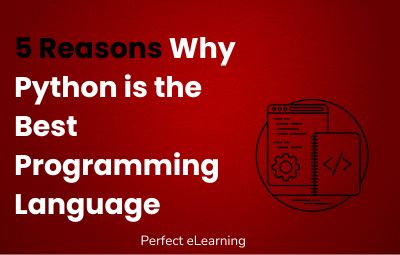

What is Python?
Python is one of the most popular programming languages in the
world today. If you want to become a programmer or even just learn some basic
coding skills, then learning Python is essential.
Python was created by Guido van Rossum in 1991 at AT&T Labs.
He wanted something simple to teach beginners, and he succeeded. Since then, it
has grown into a powerful language that is widely used to create websites,
apps, games and other software.
Nowadays, Python is considered to be one of the easiest
programming languages to learn. You can even take online or offline classes to
learn to write code in Python.
Features of Python:
· Python is a powerful programming language that was designed by Guido van Rossum at AT&T Bell Laboratories in 1980. It is widely considered to be one of the best interpreted languages. Python is object-oriented, meaning that it uses objects (a kind of data structure) to represent real world entities. Objects have their own methods, attributes, and state.
· Python supports dynamic typing, which means that
variables do not need to be explicitly declared before use. Instead, they are
typed only after assignment. In contrast, statically typed languages require
type declarations for variables.
· Python has a simple syntax. Its grammar consists
of three parts: keywords, operators, and punctuation. Keywords describe what
the program does; operators allow the programmer to perform mathematical
operations; and punctuation marks separate statements.
· Python's core philosophy is simplicity. Its aim
is to provide a high level of abstraction from low level details. As a result,
Python programs tend to be concise and readable.
· Python makes extensive use of whitespace.
Whitespace characters are ignored by the parser except where necessary to mark
the beginning or end of a statement.
· Python is dynamically scoped. Local names are
bound only to the nearest enclosing scope. A local name may refer to a variable
defined outside its current scope. If a function returns a value, then the
returned value becomes accessible through the global namespace.
· Python supports several mechanisms for exception
handling. Exceptions interrupt execution and transfer control to a catch
clause. Python provides two types of exceptions: normal and user-defined.
Normal exceptions are raised by built-in functions and indicate errors.
User-defined exceptions are raised by user code.
· Python supports modules. Modules are reusable
collections of related functions, classes, constants, and documentation.
Modules make it easier to organize software projects.
· Python supports object orientation. Classes
define data structures and behaviour. Class instances store instance variables,
which are associated with specific objects. Methods are functions attached to
class instances.
· Python has a rich library of standard modules.
These modules provide functionality such as string manipulation, file I/O,
graphics, networking, and numerical computation. There are over 200 standard
modules.
· Python includes a debugger. The debugger
displays information about the currently executing program line by line. It
helps programmers find bugs and optimize code.
· Python supports Unicode. Unicode is a superset
of ASCII. Characters outside of the ASCII range are encoded using surrogate
pairs. Surrogate pairs consist of a single character followed by a pair of
hexadecimal digits.
· Python offers a variety of tools for testing and
debugging. The interactive interpreter is a tool for writing and running small
scripts. The pdb module enables developers to step through a program while it
executes. The traceback module shows the call stack at each executed line. The
dis module translates Python bytecode into machine code.
· Python supports cross platform development. Python is portable across many platforms including Windows, Mac OS X, Linux, Unix, and others.


